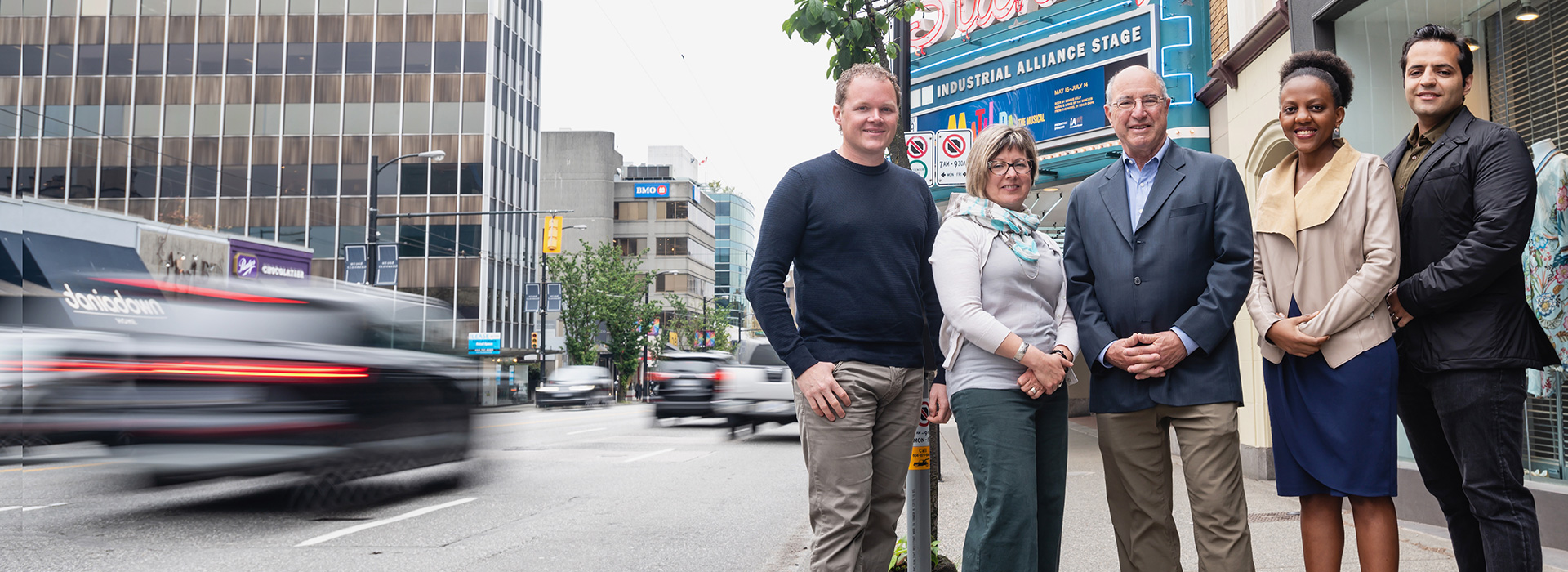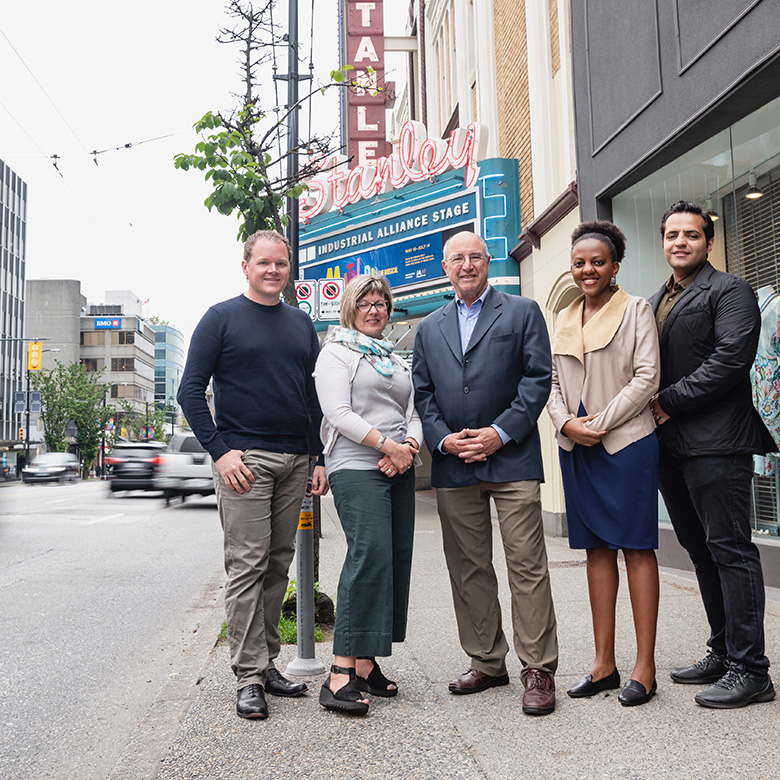Building healthier communities
Affordable prescription drugs. Reducing air pollution. Global food security. Infectious disease control. Harm reduction among youth. Equitable access to health care.
These are just a few of society’s greatest health challenges the team tackles at UBC’s Faculty of Medicine’s School of Population and Public Health (SPPH). They work across disciplines to understand the world we live in, allowing for the translation of discovery into action.
“We translate our work into solutions that make people better off, increase life expectancy, reduce illness and disability, save society money and improve the quality of life across the whole lifespan,” says Peter Berman, director of SPPH.
Throughout its ten-year history, the school has built a strong reputation for sought-after experts, while at the same time, training the next generation of passionate public health advocates. It operates with the mandate to find the causes of disease and health issues, and to search for solutions, in both local and global communities.
“We can bring in different scientific perspectives to ask the right questions,” say Berman. ‘What is important? What causes the problems that we observe and also what kinds of changes are needed to bring about improvements in the health of populations?’”
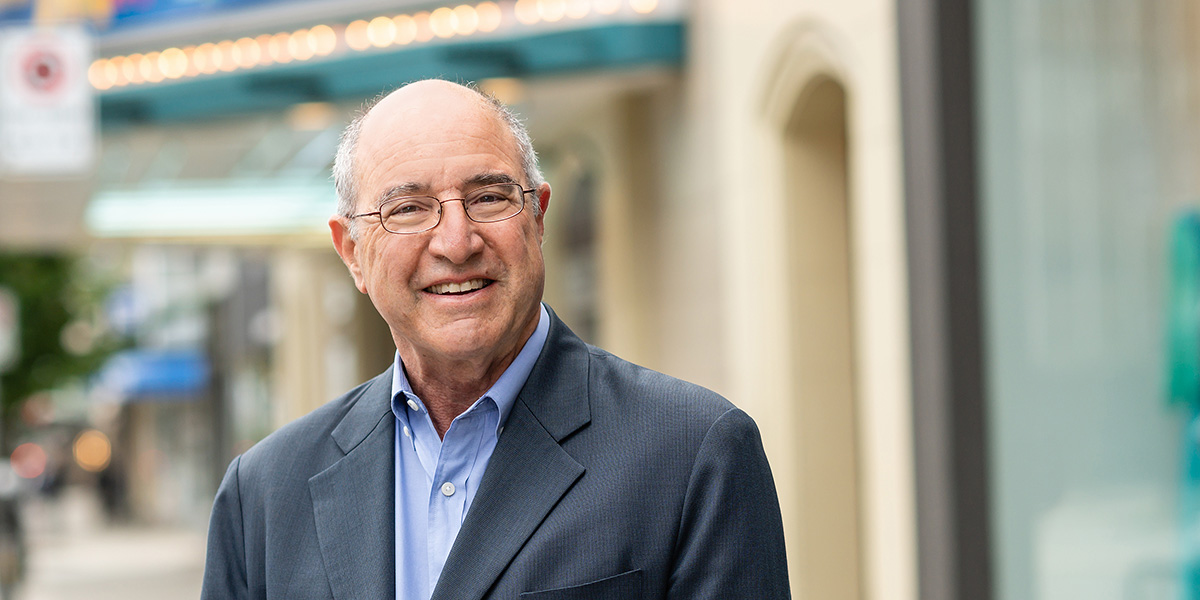
Peter Berman joined UBC in January 2019 as director of the School of Population and Public Health.
Research and impact
Michael Law, associate professor and Canada Research Chair in Access to Medicines in the Centre for Health Services and Policy Research, focuses his work on pharmaceutical policy, including prescription drug affordability, evaluating pharmaceutical policy changes, and generic drug pricing.
“The value of our work is in the practical applications to build healthier communities,” Law says. “I examine access to, and the use of, prescription drugs and make recommendations on how government policy changes will benefit the well-being of communities, both in Canada and abroad.”
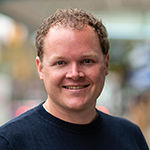 Michael Law
Michael Lawassociate professor
Canada Research Chair in Access to Medicines
One of Law’s latest studies detailed that many Canadians cannot afford their prescription drugs, with the goal of informing improvements in public health coverage and to assess where people are falling through the cracks.
Law also regularly supervises and mentors graduate students, and works with them on policy evaluation, both in Canada and internationally.
“Supervising students energizes me,” Law says. “I enjoy working with students from around the world who choose to study at SPPH and helping them develop research projects that can make a difference.”

Educating beyond boundaries
The reach of SPPH stretches far beyond the bounds of British Columbia. Students from across the globe train at the school with the goal of improving the well-being of Canadians and citizens internationally.
Marie Paul Nisingizwe is completing her PhD in Population and Public Health. She is evaluating the mass screening and treatment program for the hepatitis C virus implemented in her home country of Rwanda. Nisingizwe’s research project is in collaboration with the Rwandan Ministry of Health and will inform its national policy.
“Rwanda is a developing country and we still have fewer people trained in health services research or epidemiology methods, so I feel that I will be in a better position to contribute to my country after this program,” she says.
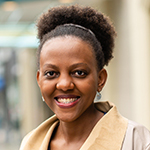 Marie Paul Nisingizwe
Marie Paul NisingizwePhD candidate
While working toward her comprehensive examinations, Nisingizwe is grateful for the opportunity the program has provided.
“The program has allowed me to do studies that are based on the community needs by involving stakeholders, community, and policymakers,” she says. “It helps students to use methods and theories to transform people’s lives.”
7
degree programs
1,078
degrees conferred
11
research units
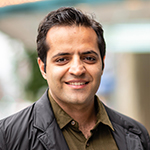 Mohammad Karamouzian
Mohammad KaramouzianPhD candidate
“At SPPH there is a specific focus on asking the relevant question to the community and then there is a real emphasis on knowledge translation to the community and the knowledge users,” he says.
After completing his dissertation, Karamouzian hopes to work on informing and improving Canadian public health policies in the field of mental health and addiction.
Moving forward
Ten years after its creation, SPPH has made great strides in contributing to innovations to address pressing health challenges.
The latest addition to the SPPH family is the Centre for Excellence in Indigenous Health (CEIH) created in 2014 as a single point of contact within UBC for support, training and resources for Indigenous health. The recently added Certificate and Graduate Certificate in Indigenous Public Health Program — the first of its kind in Canada — aims to equip participants with the skills needed to address public health issues in Indigenous communities.
“I really enjoy sitting with Elders and Knowledge Keepers, working with students across different programs and with community partners towards change and improved relationships,” says Leah Walker, associate director of education at CEIH.
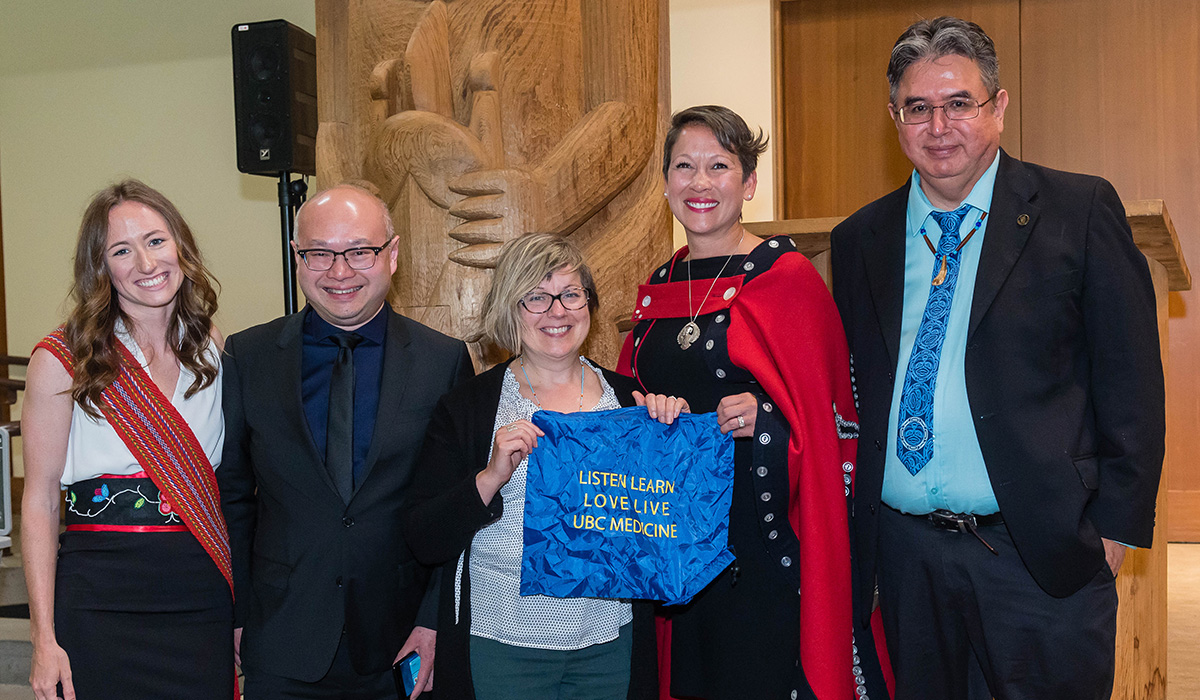
Leah Walker, associate director of education at the Centre for Excellence in Indigenous Health (centre), celebrates with Zoe Friesen, an Indigenous graduate of the Vancouver Fraser Medical Program; Roger Wong, Executive Associate Dean, Education; Minister Melanie Mark; and James Andrew, Indigenous Student Initiatives Manager; at the graduation ceremony on May 21, 2019 for UBC’s Indigenous MD Admissions Program. Leah Walker (centre) at the graduation ceremony on May 21, 2019 for UBC’s Indigenous MD Admissions Program.
Moving forward, Berman says his vision for the school’s future is to expand upon its strong foundation of education and research. Building on UBC’s objective to address global and local health disparities is central at SPPH.
And as we continue to see the health impacts of climate change affecting the world’s most vulnerable populations — whether it’s the effects of forest fires in our local communities or a rise in infectious diseases around the world — never has there been a more critical time for this work to be done.
“I am a strong believer in a term I call ‘glocal,’ combining the impact of global and local public health,” Berman says. “Much of the work we do here in B.C. can benefit others in the world, and there are also things others can teach us, that can improve the health of communities here at home.”
SPPH By the Numbers
- 1,078 degrees conferred between 2008 to 2018 to graduates of SPPH
- 355 students enrolled at SPPH for the 2018/19 academic year
- 234 faculty members
- 141 staff members
- Seven degree programs
- 11 research units
Share this Story
Published: June 2019
